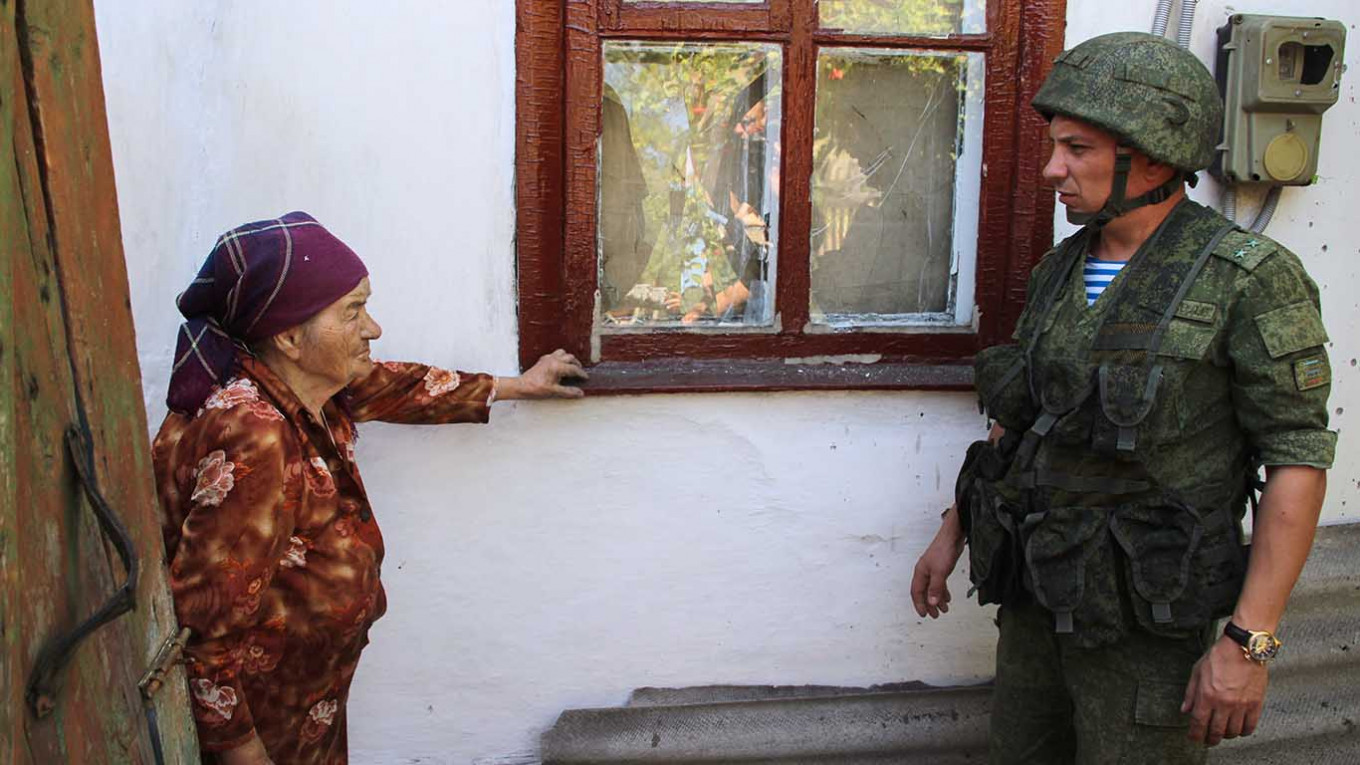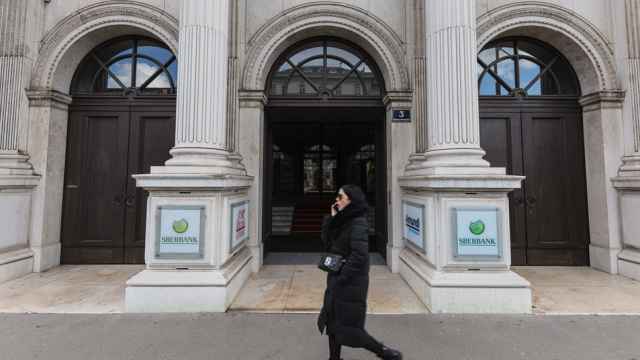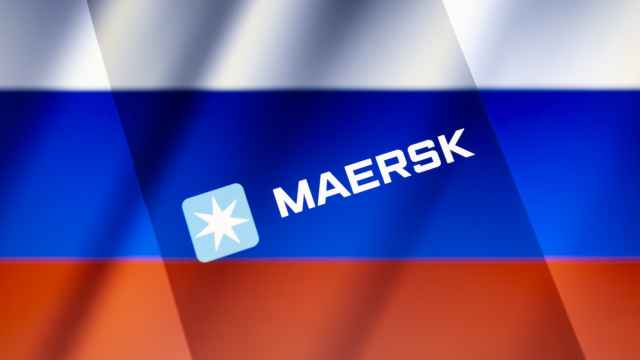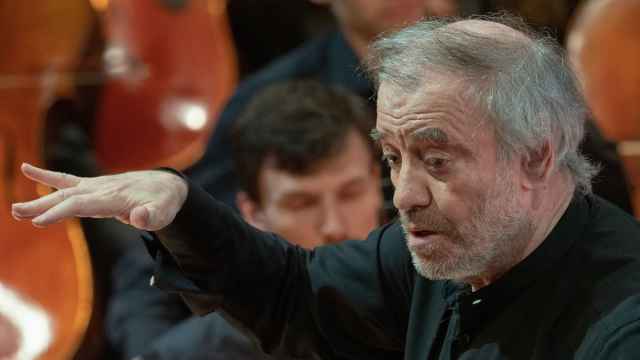From March 2014 to March 2021, the percentage of those in support of Crimea’s annexation by Russia has hovered constantly at 86%, give or take 2%, which falls within our margin of error.
There is not a single other indicator in the surveys carried out by the Levada Center in the last seven years that has remained so stable. Russia’s actions in Crimea propelled Putin’s famed popularity rating to the heights of 89%, though recent events have seen it slide to 63%.
With the Donbass region it was a different story. When the first barricades appeared there and the Russian flag was hoisted aloft, many in Russia were convinced that after Crimea, Moscow would seize the Donbass.
In March 2014, 48% of Russians were in favor of southeast Ukraine becoming part of the Russian Federation.
However, after evaluating its capabilities and the international situation, the Kremlin took a different decision. Moscow made it clear to the leaders of Donetsk and Luhansk that they should fight not to become part of Russia, but for “independence.”
Russian public opinion changed immediately. By May 2014 the predominant answer (36%) in surveys was already: “We would prefer southeast Ukraine to become an independent state.”
In 2015, just 16% continued to dream of the Donbass being incorporated into Russia, since by then the Kremlin had a new design, and 27% of Russians understood it. They became in favor of southeast Ukraine remaining part of Ukraine, but receiving greater autonomy from Kiev.
“Independence” for the “Donetsk People’s Republic” (DNR) and the “Lugansk People’s Republic” (LNR), continued to be the most popular scenario among Russians in 2015–2017, with 37%–39% in support of this outcome.
By 2019, however, Russian mass consciousness had entered a state of confusion, with three ideas of comparable popularity swirling — that southeast Ukraine should become an independent state (29%), that it should become part of Russia (27%), and that it should remain part of Ukraine (28%). In the last case, a quarter of respondents envisaged this being on the same conditions as before the crisis, while three quarters favored significant independence from Kiev.
Then came March 2021. It so happens that the president in Moscow and the president in Kiev are facing tough times, each needing to shore up their falling popularity.
And it seems to both sides that playing a game with armed conflict in the Donbass might help to achieve this.
And so the word “war” is now hanging in the air in both capitals, amid flickering footage of lines of tanks advancing, and machine gunners and riflemen taking aim.
The result: The public is growing nervous, and it is precisely these people, with their fear of war, that the Kremlin’s spin doctors are counting on using to gather a new contingent of support for the Russian authorities. It is likely that Kiev has similar plans.
In the Donbass itself things are calmer.
Taught by the experience of many years of war, people are convinced that as long as the spring thaw lasts on the fields and roads, there won’t be war — military hardware will just get bogged down in the mud. There will be skirmishes, but this is hardly news.
On both sides it is in somebody’s interest that the ceasefire is not observed.
The fear of military conflict is plunging Russian public opinion into a state of doubt. What should be the desired result from the confrontation in the Donbass?
A very relative majority of 28% of Russians continue to agree that the DNR and LNR should become an independent state, or states.
Almost the same number — 26% — see the regions’ future within Ukraine, though here 10% believe that they should be part of it “on a general basis," i.e. they agree with the demands of the Ukrainian side, while 16% support relative autonomy for Donetsk and Lugansk regions within Ukraine.
A slightly smaller proportion — 25% — think that the self-proclaimed republics should become part of Russia.
It is very telling of today’s climate that a new category of comparable size has appeared among those surveyed. These are the 21% who were unable or unwilling to choose one of the previously described options for solving the “Donbass problem.”
No end in sight
This year Russians were asked for the first time how things were likely to end in southeast Ukraine.
The answers showed that Russians themselves do not expect their political preferences to become a reality. While 25% said they would like to see these regions incorporated into Russia, substantially fewer (19%) believe that this will actually happen.
Even fewer (16%) believe that the DNR and LNR will return to the bosom of Ukraine, with respondents equally split on whether they would do so “as ordinary regions” or “with broad autonomy.”
In this survey, the familiar third option was reformulated — “the DNR and LNR will exist as independent states, like Transnistria, Abkhazia and South Ossetia.” The mention of these precedents did not generate particular enthusiasm, however, with just 12% in favor of this scenario.
The most commonly selected response was “This confrontation will last for many years,” with 32% choosing this option.
Yes, the Donbass is not Crimea. It appears that Russians see the solution to the “Donbass problem” to be not solving it.
A Message from The Moscow Times:
Dear readers,
We are facing unprecedented challenges. Russia's Prosecutor General's Office has designated The Moscow Times as an "undesirable" organization, criminalizing our work and putting our staff at risk of prosecution. This follows our earlier unjust labeling as a "foreign agent."
These actions are direct attempts to silence independent journalism in Russia. The authorities claim our work "discredits the decisions of the Russian leadership." We see things differently: we strive to provide accurate, unbiased reporting on Russia.
We, the journalists of The Moscow Times, refuse to be silenced. But to continue our work, we need your help.
Your support, no matter how small, makes a world of difference. If you can, please support us monthly starting from just $2. It's quick to set up, and every contribution makes a significant impact.
By supporting The Moscow Times, you're defending open, independent journalism in the face of repression. Thank you for standing with us.
Remind me later.








